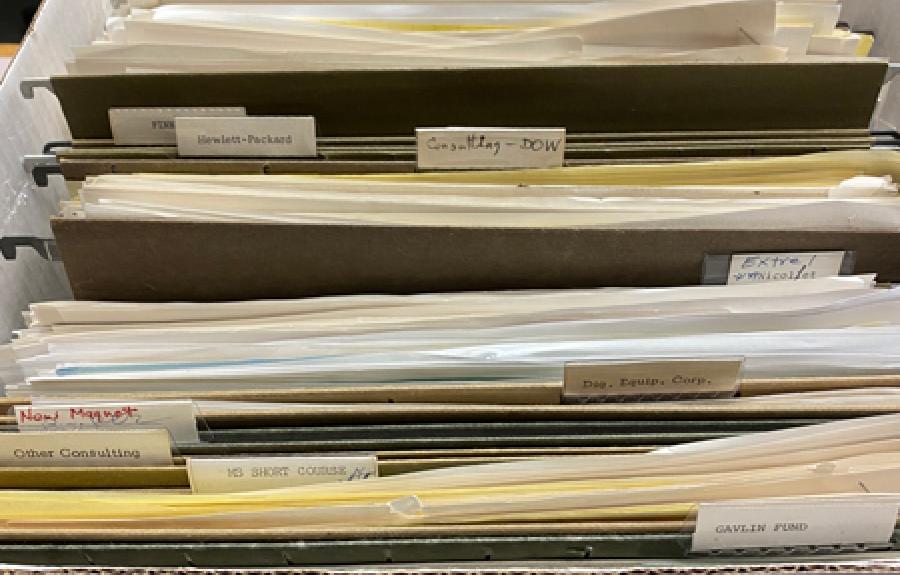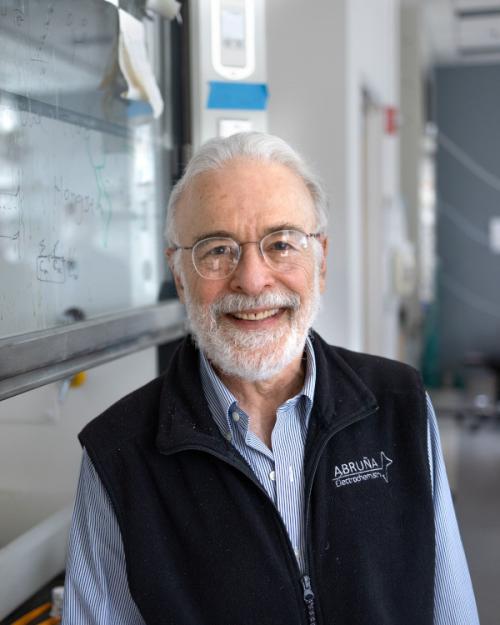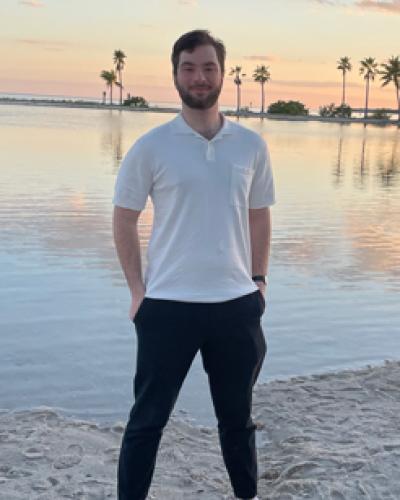Note: This article highlights excerpts of an article originally published on the Cornell Department of History's website by Claire Perez. The article features a Q&A with Alex Siegenthaler, a senior double majoring in chemistry and history. Alex's honors thesis explores the history of chemistry and factors influencing scientific development, specifically highlighting the work of Fred McLafferty, Peter J. W. Debye Professor Emeritus of Chemistry at Cornell (1923-2021).
Q. Who are your Honors thesis advisors?
A. My thesis advisor is Suman Seth, Marie Underhill Noll Professor of the History of Science (and STS Department Chair), with T. Robert Travers, professor of history and the instructor of Honors Research. My first reader is Jessica Ratcliff, assistant professor.
Q. What is the topic of your Honors thesis? Who or what entities are involved? Please share details with us.
A. The topic of my Honors thesis is the history of chemistry and, more specifically, the factors affecting scientific development. I am doing a case study on the spread of mass spectrometry across disciplines during the second half of the twentieth century. I use the work of Fred McLafferty, Peter J. W. Debye Professor Emeritus of Chemistry at Cornell (1923 – 2021), as an example of making the spectrometer, and thus science, accessible to other fields. That increase in accessibility led to a decrease in the necessary theoretical knowledge, with the thesis further exploring the development of the mass spectrometer as “black-box” instrumentation.
Fred McLafferty’s career parallels the development of spectrometers in fields like chemistry, medicine, pharmaceuticals, and petroleum engineering. He worked from the 1950s until the early 2000s and developed algorithms for selling ideas across disciplines. He touched many lives with his scientific collaboration.
This thesis is not a big-man history. It is about how McLafferty cuts across boundaries to get funding from different sources and, in so doing, expands the use of a scientific instrument. Spectrometry is a framing reference, and marketing spectrometry is a narrow scope. Fred McLafferty trained and collaborated with different entities than one usually finds in the sciences. For example, he had a lab that kept getting post-doctoral students. He recruited Chinese students in the 1980s who were able to take this knowledge back to China.
Q. What courses and personal interests led you to this topic?
A. In high school, I was interested in both chemistry and history. I knew Cornell had strong programs in both, which is why I chose Cornell. I became interested in mass spectrometry during Honors Experimental Chemistry I. I did not know there was a subdiscipline about the history of science until I took Introduction to Historical Research with Professor Peter Dear, a recently retired historian of science.
One day I went back home and took a look at the science and math books on my shelves and realized that all the topics have a history. At that point, I began to think of the questions I could ask and research. I learned that Fred McLafferty’s papers were at Cornell, and I started investigating.
I developed my thesis proposal during the winter break of my junior year.
Q. Where have you found sources for your research?
A. I have found sources for my research in Cornell’s Division of Rare and Manuscript Collections, Cornell University Library. I accessed some of these resources. The collection holds seventeen of McLafferty’s books and twenty-three boxes of personal papers.
Also, I accessed the online copies of Fred McLafferty’s books for my project.
Q. Are there any features of your resources that you found unexpected: condition or information involved?
A. Yes. I researched the history of the pedagogy of chemistry at Cornell, and I thought I would find syllabi covering courses throughout the years. Instead, I found pictures of buildings, and I saw what one of my classrooms looked like one hundred years ago.
I also was surprised that Fred’s archives included a Happy Birthday email he received in 2003 with his complete response. It was interesting to note also the demarcation between handwritten letters and emails. My biggest takeaway, humorously, was that I assumed everything was an email, because that is the communication I’m used to, only to realize everything from at least before 1990 was almost certainly letters.
As a side note, I saw that in Sunset Park in Cayuga Heights, there is a park bench with Fred’s and his wife’s names on it. That was a pretty cool find.
Q. What other information would you like to share with our readers?
A. I have discovered that policy often dictates what gets researched. This project allowed me to look at the nuanced picture: scientific narratives tend to assume a clear path forward for scientific progress, but the reality is that policy affects what scientific topics are tackled and, therefore, how science develops.
See this link for access to the full Q&A.





